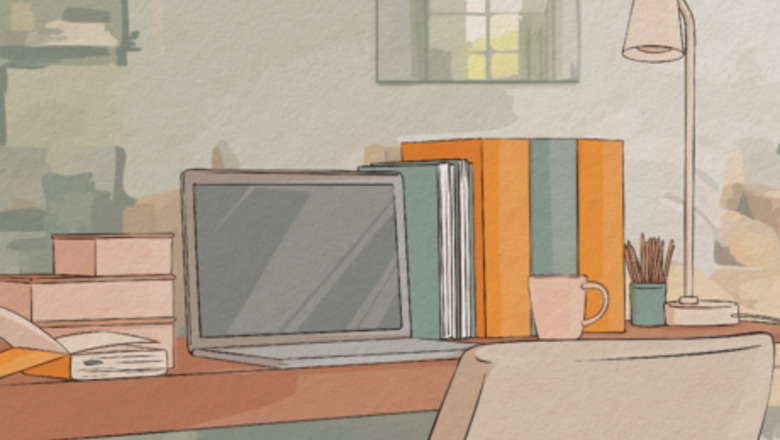
views
Keep possessions organized.

It's easier to get things done if you have all the supplies on hand to do it. Avoid wasting time looking for tools or documents by having them all accessible and organized from the beginning.
Make a list of all things that need to be done.
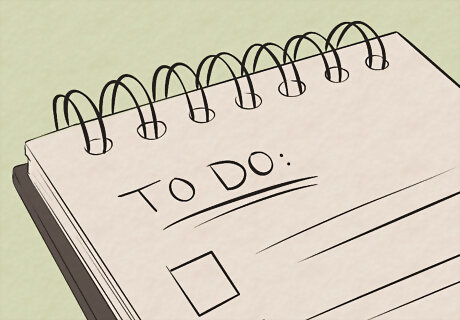
Write down what you need to do for the day, week, and month. Even though you may just want to do this in your head, actually writing it down has a huge impact. Try to be specific and reasonable. For example, don't write 'continue novel' or 'clean house.' Instead, write things such as 'write 500 words' or 'tidy the living room floor.' Small, achievable tasks are best. If you have a big goal in mind, try breaking it down into smaller steps on your list. Don't get too distracted by the list. If list-making is taking more time than just getting down to work, put it aside and start being productive. If tasks have a deadline, mark them on. This will help you in prioritizing. Prioritize the tasks. A simple numbering system works well - you can decide to either prioritize the tasks that need to get done first, or get particularly hard/long tasks out of the way first. Alternative, you might even opt to start with a few shorter/easier tasks so that you can knock a few off the list quickly.
Find motivation.

Motivating yourself can help inspire you to get anything done. Try these tricks to help motivate yourself to tick things off your to-do list: Shed light on the situation. If it is daytime, open the curtains. If it is night, turn on the brightest lights. This will have a psychological impact on you. List all the advantages of completing the goal you have. Come up with as many things as you can. Tell people when you will be finished by. Set rewards for yourself. Open the windows if you can to let in the fresh air. Play music.
Remove distractions.
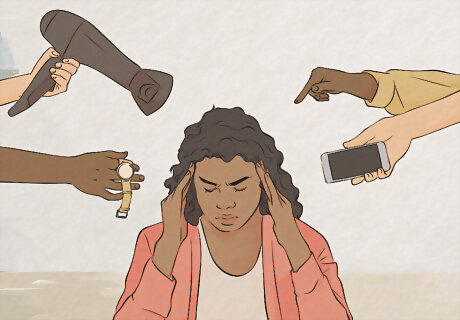
It's a good idea to remove anything that may be deterring you from work. Distractions can include phones, emails, social media, family etc. If you are being distracted every 15 minutes, you will get little work done because it is impossible to get immediately back to work after a distraction. For most people this takes 5 - 10 minutes. Consider letting your family members, coworkers/classmates, or housemates know that you're buckling down to work on something important, so that they won't distract you.
Do things one at a time.
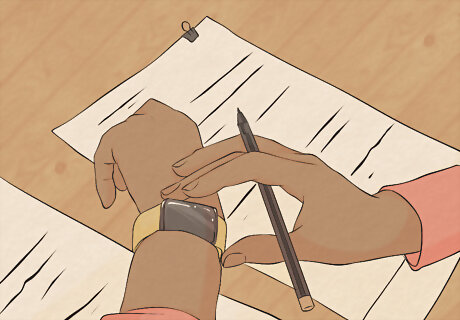
Focus on one thing at a time rather than multitasking. Many people believe that multitasking increases productivity, but the truth is tackling things one at a time will allow you to complete more in less time. Break tasks into smaller chunks if needed. One huge job can seem overwhelming, but if you break it down into sections, it becomes more manageable. For example, "write an essay" seems big, but if you start with "brainstorm ideas" and "write a topic sentence," each part becomes a much smaller and more achievable goal. As you do each task, check it off your to-do list. This feels great, and can motivate you to keep going down the list.
Take short breaks every hour.

Quick breaks can help increase your productivity. The breaks should be no longer than 8-10 minutes. During this time you should stretch and exercise a bit. This will help you come back to the task with more focus, and keep at it for a longer period of time overall.
Eat and drink as needed.

Fuel your body to keep yourself energized and motivated. In particular, drink lots of water. Your brain and body can only work properly if you are hydrated. While drinks and snacks can be distracting, they also help keep your energy up. If you're thirsty or hungry, don't ignore these feelings - take care of them, and get back to work.
Keep your workspace tidy.

Having a tidy workspace can help keep you motivated. So, clean off your desk or table. Remove anything that might be a distraction, like your phone, crafts, pictures, etc.
Remind yourself of the goals and rewards.

If you lose sight of why you're working so hard, look back at your to-do list. Try to refocus on your motivation or why you're completing a task or job. If needed, taking a few moments to re-adjust your mindset like this will help you stay on task.

Reward yourself for a job well done. Give yourself the rewards you had promised yourself. Be honest with yourself - if you do not complete the task, do not reward yourself.

















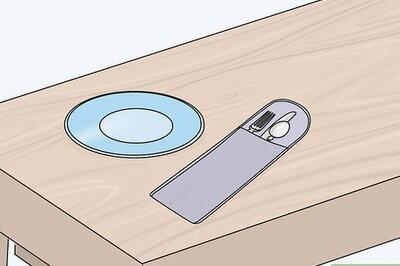
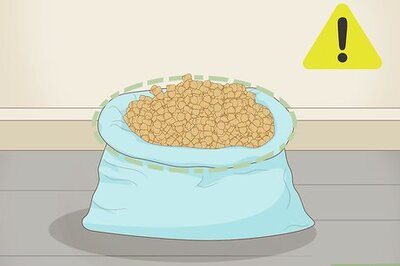
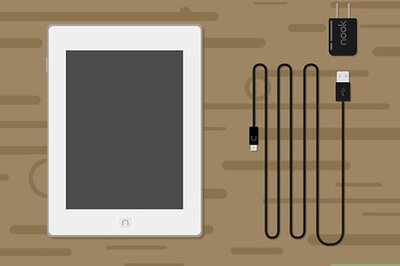
Comments
0 comment